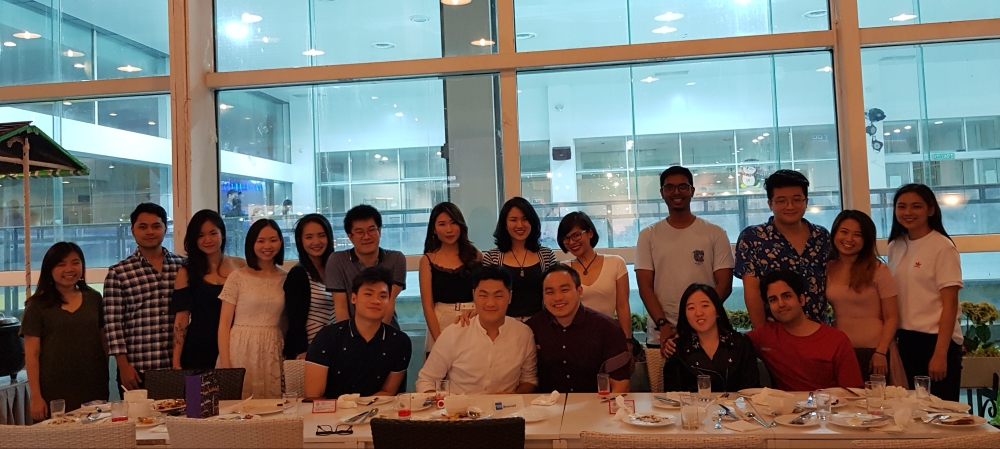This month at BrainyLaw we have the privilege of gathering 11 Lawyers and Practitioners (5 Guest Writers and 6 of BrainyLaw’s Writers), in:
Amanda Kong Hwei Zhen (formerly from Skrine), Shu Kee (Amos Ho, Sew & Kiew) Najwa (Kevin & Co), Jean Siow (formerly from Fahri & Co), Crystal Tan (Ewe Chong & Khoo); and
BrainyLaw’s Lee Yoke Shan (Chris Lim Su Heng), Yeoh Kai Shin (Thomas Philip), Ivan Fredric (Chooi & Co + Cheang & Ariff), Kimberly Teoh Mei Lee (Yee & Associates), Harvin Sidhu (Vin Law Co) and myself, Weera Premananda (Justin Faye & Partners),
to share our stories after threading the 14 weeks Legal Aid programmes that were assigned to us. This joint article looks back on our legal aid journey, and we hope that by penning down our experiences to the future generation of lawyers, we can shed some light about what future lawyers should expect, and hopefully ensure they make the right choice and have a great time contributing back to the society. (And managing expectations of course!)
The write up would primarily include write-ups on the job scopes, overall experience and the type of pupils who would be suited to that particular programme, as well as sharing our insider tips on what particular skills or characteristics would help one make the most out of the programme.
The views expressed here are of the respective writers, and may not reflect the views of the respective Legal Aid bodies. This joint article can and will be updated constantly to ensure accuracy. Due to confidential nature of most of the work in the programmes, the pictures featured herein are mostly taken after the programmes have ended.

1) Legal Aid Clinc (LAC) by Amanda Kong Hwei Zhen (ex Skrine) and Harvin Singh Sidhu (VIN Law Co)
Amanda Kong
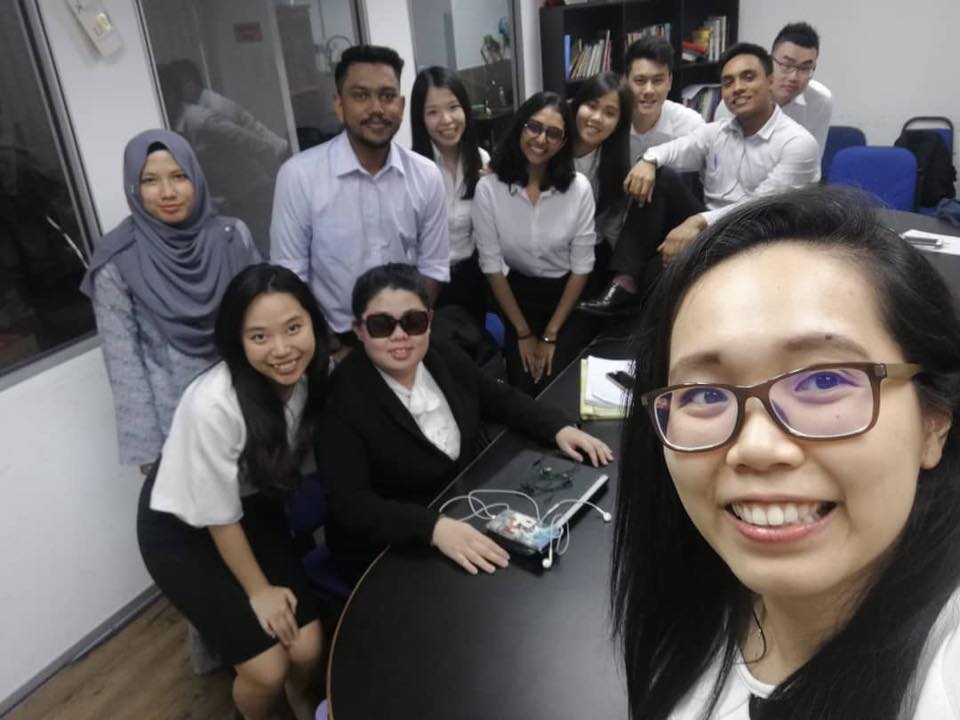
1) General comments and views on the program
- An eye opener: This programme enables me to interact with people from all walks of life, and have a realistic picture of the problems placating our society today (e.g. divorce, obtaining custody of children, problems relating to employment).
- Broadens knowledge and gains experience: the LAC provides legal representation for individuals who are unable to afford legal representation. For those who do not qualify for legal representation, free legal advice is provided. In this respect, it is an excellent learning platform for pupils. I was able to broaden my knowledge in various areas of the law (e.g. property law, family law, employment law, the law of succession) when providing free legal advice to clients. I managed to hone and develop my communication skills when interviewing clients, hence gaining hands-on experience.
- Promotes volunteerism: Joining the LAC allows me to truly grasp the importance of pro bono work. Giving back to the society by extending a helping hand to those who are in need is an excellent way for me to contribute to the society and nothing beats the self-satisfaction gained when I saw the happiness and relief of clients that I helped out whenever the LAC managed to solve their problems.
- Jobscopes of the programme would include be providing legal advise to clients and liaising with the other volunteer lawyers.
2) Likes/dislikes
- Training: The LAC provides training to pupils, by giving them a brief outline of the areas of law dealt with by the LAC and also coaching them on interviewing techniques before starting the programme.
- Interesting/unusual cases: At times, pupils may be handling unusual cases which may be interesting. For instance, I handled a case wherein the client asked the LAC to enquire as to whether her spouse had been married prior to their marriage as she failed to obtain that information from the Jabatan Pendaftaran Negara (JPN). The reason for making the inquiry is that she had a “magic wand” which she had brought along, that informed her that her spouse had been married twice. Said client also offered to tell me more about the predictions made by her magic wand, which I had the sense to decline!
- Team spirit: LAC pupils are encouraged to work in pairs when interviewing clients, hence promoting team spirit.
- Helpful staff: All the staff at LAC is helpful and friendly. Guidance is given to pupils when providing legal advice to clients. The staffs are also very accommodating, as they ensured that I managed to settle in and blend with other pupils despite my disability (visual impairment)
Dislikes:
- Unable to deal with a case until its completion: Usually, pupils only get to handle the preliminary stage of a case.
- Negative clients: Some clients may be rude and unfriendly, hence making the interview awkward and difficult to conduct.
3) Type of pupils who may enjoy the programme:
- Pupils who enjoys litigation and/or dispute resolution work.
- Pupils who are able to communicate with individuals from various backgrounds and with different personalities.
- Pupils who are fluent in more than one language may have an advantage here.
- Pupils who enjoys working together with others.
4) Essential skills of pupils joining legal aid:
- Advocacy skills – essential when providing legal advice or when representing a client.
- Communication skills – employing the appropriate interviewing technique is important to gain the client’s confidence.
- Keep an open mind and always ready to learn.
Harvin Sidhu
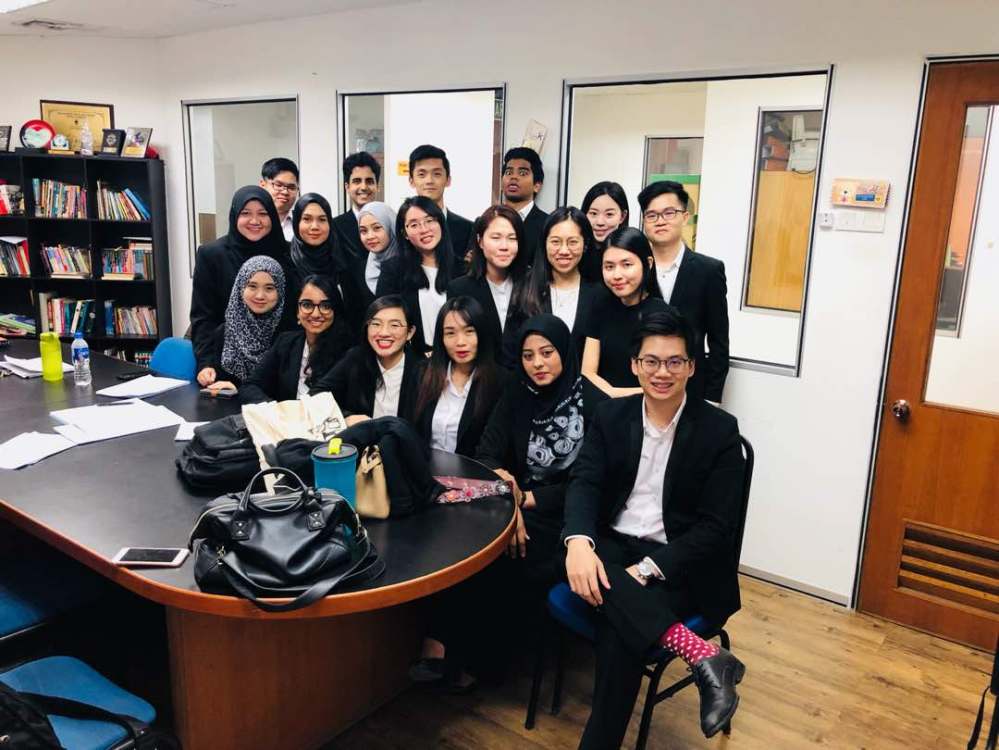
1) General comments and views on the program
- As far as legal aid programmes go, I am of the opinion the LAC is the most general type, where we assist applicants in Family law/Employment/Syariah matters and where the entire duration is usually conducted within the clinic itself. Applicants would arrive at the clinic with legal issues where they need legal aid and pupils (usually in pairs) would conduct interviews with the applicants to ascertain if they qualified for legal aid, and if they did, a file would be opened for legal aid lawyers to work on it.
- If the applicant didn’t qualify for legal aid, then the aid would be in the form of legal advise given to the applicants. Pupils working in pairs learn a lot with researching issues relating to matrimonial or employment matters.
- The facilities and staff at the LAC are utmost helpful when it comes to any issues that were encountered so far. It may not be as challenging as some of the other programmes but it’s certainly as useful when it comes to help people.
2) What did I enjoy/dislike about the programme?
- I liked the opportunity to encounter unique scenarios all the time when applicants came into the centre requesting for assistance;
- Secondly would be that the LAC I think was the one where pupils could interact with each other much more than the norm in other programmes, mostly when there were no applicants present;
- The entire legal aid being conducted in the clinic meant I didn’t need to travel and could rely entirely on public transport for the 3 months.
- As for the training provided, I am ambivalent of it generally. It was brief but at the same time a lot of topics were covered which pupils may not have had experience with in law school;
- The main point of contention I had with the LAC programme, and I daresay most of other pupils too, was that more often than not, we had to turn applicants away during the interview process because they did not meet the threshold to qualify for legal aid. It felt wasteful of both theirs and our time when we were forced to reject applicants because the failed the means. (The means test is method to calculate an applicant’s earning capacity/property/belongings to justify whether they ought to receive legal aid). There are those applicants who have a vehicle of a certain value only because they livelihood depends on it, and I was of the opinion that they ought not to have taken into consideration when passing the means test to qualify for legal aid.
3) Your views on what type of Pupils will enjoy your particular programme:
- If you are one who does not like to venture outside most of the time, and prefer to assist from entirely inside the clinic, then you will definitely prefer the LAC over the other legal aid programmes. Whilst there are occasional moments where a pupil needed to travel to the police station to assist in obtaining reports or following up with a case, for most of the the pupils, we did not get to go out (or fortunate enough not being forced to go out depending on your point of view) during the entire 3 months;
- If you are involved in employment/family law/syariah matters and want to apply yourself by giving advise to the applicants or alternatively if you want a crash course on those areas of law and want to give it a go.
4) What are skillsets needed to thrive in the legal aid programme?
- Interpersonal communication. One needs to know how to speak to people and get their full story out. There have been situations where applicants would not always tell the story until we probed further. Their reasons for not divulging every details may vary, but the programme does allow you to coax information out of applicants who may be unwilling to do so initially;
- Knowing more than BM & English is certainly helpful. I recall more than several occasions where I had to sit out because I could not converse with applicants at all.

2) Prison Visit by Lee Yoke Shan
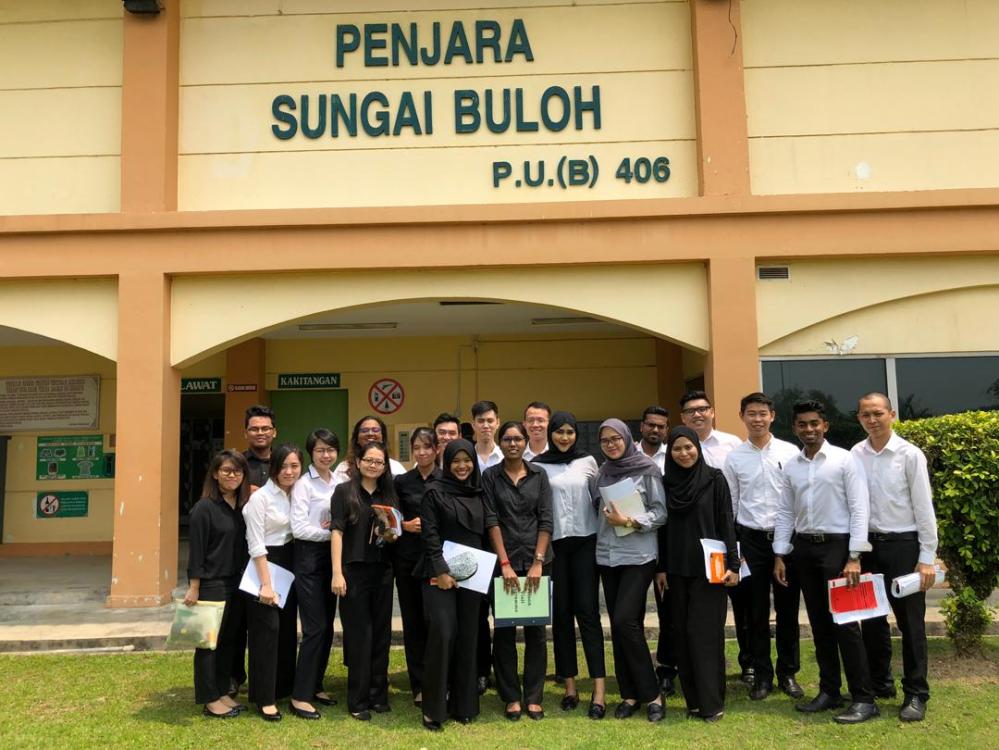
1) Brief Jobscope and description of the Programme
- The program allows us a once in a lifetime experience to enter the prison and to have close contact with criminal suspects (OKT/ODS) which is a rather interesting experience.
- For Selangor Prison Visit, its once every two weeks so it gives us some time in between of juggling work although it drags the period of our legal aid programme.
- The programme would be solely on advising the OKT/ODS legally on their offences, sentences and to get the facts right about their case. The facts that we procured would be transmitted to the Dock brief pupils in doing mitigation/bail application.
2) What did you enjoy/dislike about the programme?
- The fact that I can encounter different OKT/ODS who are in remand. This is definitely something that I look forward every time I’m scheduled to attend Legal Aid. What I dislike the most will have to be the smell of the prison, definitely. However most often than not, the environment is rather clean actually although the scent may not be that pleasing.
3) Your views on what type of Pupils will enjoy your particular programme
- Pupils who don’t mind and are not picky of the smell and environment. Also, the fact that there’s no aircond and having to wear long pants / skirt.
- Pupils who are brave enough to give legal advise to OKT/ODS who can possibly be mentally unstable, really old and also be of different race who speaks different language / dialects.
- Pupils who are interested in criminal procedure.
4) What are skillsets needed to thrive in the legal aid programme?
- Being able to give clear opinion in criminal procedure and advise related to offences under Dangerous Drugs Act and Penal Code.
3) Sisters in Islam by Najwa
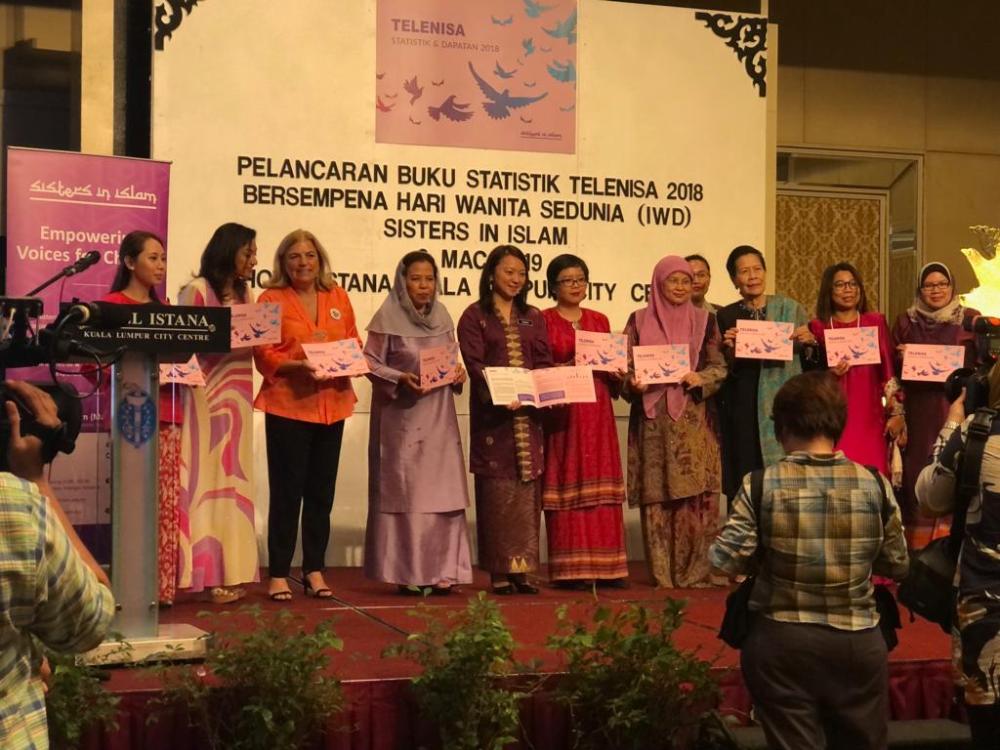
1) Your general comments and views on the program
My view is that SIS has noble aims in that they fight for Muslim women’s rights against those who oppress women and they fight for gender equality among Muslims. SIS through their hotline known as Telenisa provides free Syariah family law advice to those in need. Pupils are assigned to advise these clients through the Telenisa hotline.
I really enjoyed being on duty at SIS. SIS is located in Petaling Jaya and their office is super comfortable. The staff there are really nice too. SIS also has several events throughout the year such as the Telenisa Statistics 2018 launch that took place on 8th March 2019 in conjunction with the Women’s Day celebration.
2) What did you enjoy/dislike about the programme?
As part of our legal aid duty with SIS, we are also required to attend matters in the Syariah courts and observe the proceedings and report back to SIS with our observations. I really enjoyed this part of the programme. It really opened my eyes to a whole new world, instead of being confined to the civil courts most of the time.
I disliked situations where I could not advise clients on neither Syariah law nor civil law, hence they are caught in a legal limbo. I feel so sorry for these clients, especially for those who do not have money to go to either Court. I also did not like that for certain Syariah courts, the public is allowed to observe Syariah criminal court proceedings, which I feel are very private matters and should be held in chambers instead.
3) Your views on what type of Pupils will enjoy your particular programme
The ‘elephant in the room’ here is that to apply to be a part of SIS, you have to be Muslim as SIS only recruits Muslim pupils. Having said that, let it be known that SIS provides help and assistance to both Muslim and non-Muslim brothers and sisters. I think that for recruitment purposes it is just a matter of procedure and nothing more.
Pupils who will enjoy this type of programme I feel will be pupils who would like to try something different from civil courts. I had to go “undercover” when I attended and observed Syariah Court matters and not reveal that I am from SIS when I speak to court officers (I just say that I am a pupil interested in Syariah law) as SIS has been in recent times, unfairly associated as being controversial. It was a refreshing change from being an acknowledged, active participant in the civil courts to becoming an observer and going “undercover” instead.
4) What are skillsets needed to thrive in this legal aid programme?
You have to be patient and calm when advising clients. Other than that, you just need to have a thirst for knowledge for Syariah law.
4) Tenaganita – Crystal Tan

1) General comments and views on your program
- In TENAGANITA, we do not label the immigrants as ‘Pendatang Asing’ or ‘Illegal Immigrants’ or ‘Pendatang Tanpa Izin’, we refer them as ‘PERSON OF CONCERNED’ (“POC”). The rationale behind this is simply that they are all humans just like us, and no one is born in this world to be labelled as “illegal”.
- The pupils serve their legal aid duty from 10 a.m. to 5 p.m. once a week (not applicable to fast track program).
- The Pupil’s daily routine in the morning is first to carry out the newspaper monitoring and gather all the materials in relation to the human trafficking, migrant workers, domestic violence and refugees.
- The pupils are required to give legal advice and representation to the migrant workers from time to time.
- The pupils would be divided into few groups to handle different task assigned by the TENAGANITA officers, amongst others, as follows:-
a) interviewing the Person of Concern (POC);
b) documenting the case;
c) preparing daily reports;
d) attending calls and making calls;
e) going to the courts;
f) going to the Immigration Department;
g) dealing with the employers; and
h) assist in media conference.
2) What did you enjoy/ dislike about the program ?
- Sometimes we tend to get frustrated or annoyed when the relevant officers or Employer(s) keep avoiding us by not answering the phone calls or by not attending the meeting that has been scheduled or not cooperative at all.
- Majority of the files in TENAGANITA handled by different pupils and it will cause unnecessary trouble or double the work of the other pupil to follow up on the same file if the reports are unclear or left unattended.
- We will feel contented and happy if we are able to help the POC.
3) Your views on what type of Pupils will enjoy your particular program ?
- Those who are keen in helping the POC or the NGO.
- Those who are keen advocates of Human Rights.
- Those whom are interested in Employment Act, Immigration Act and Anti-Human Trafficking and Smuggling of Migrants Act in relation to the rights of the migrant workers and refugees.
- Retired officers of Police Force or Immigration Department.
4) What are the skills and traits needed to thrive in the legal aid program ?
- Preferably to have diversity in terms of race and language abilities of pupil in each group in order to avoid situation where the POCs can only speak one language. TENAGANITA also have interpreters to assist the pupil during interviews (if requested).
- Responsible, patient, persistent and a good team player.
- Possess the communication skills which is helpful when dealing with the relevant officers.
- Mitigation skills i.e mitigate with the employers who refused to pay salaries to the POCs.
- Grit.
Conclusion : I do sincerely hope that the current government can come out with a better solution and/or policies to curb these issues once and for all.
[For more information or any donation, please visit http://www.tenaganita.net/%5D
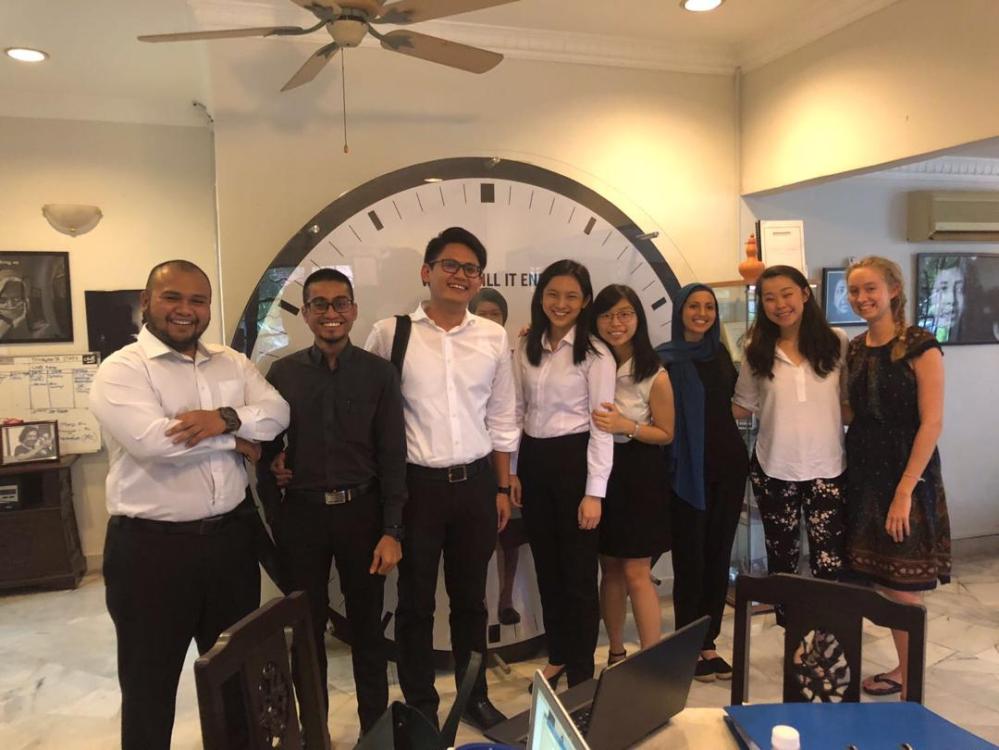
5) Malayan Union Trade Congress (MTUC) – Shu Kee
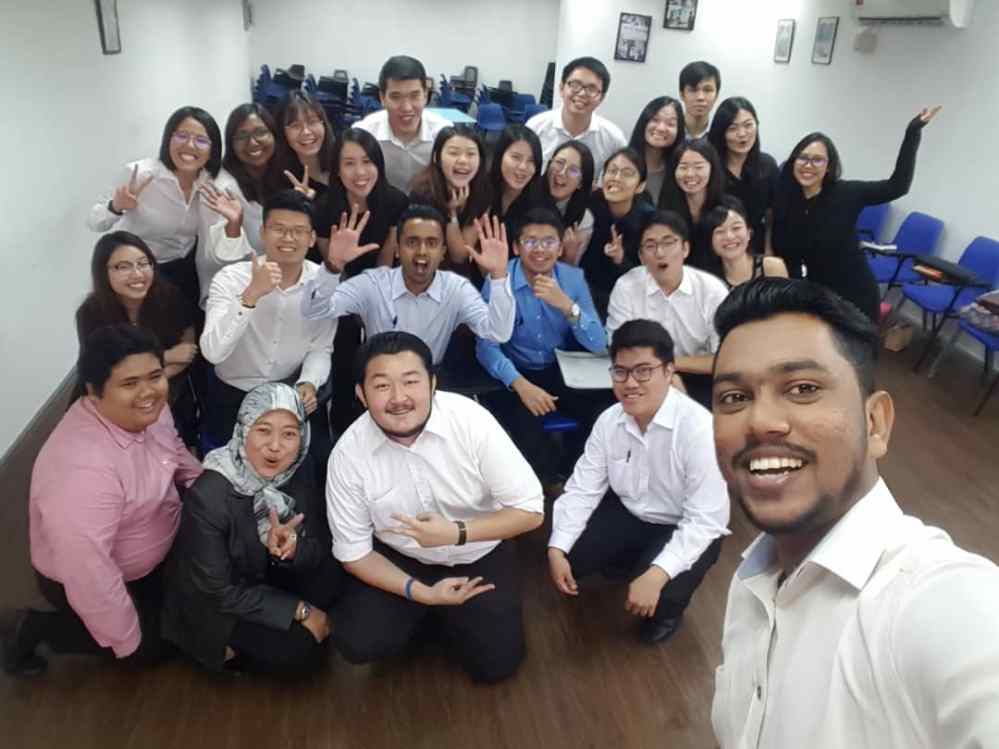
1) Your general comment and views on your program
It is definitely a bit more of a relaxed program compared to some other Legal Aid programs. That being said, it can be very hectic when the complainants come in large groups.
MTUC has a great team which us well-equipped with knowledge and skills to fight for the best interest of the workers, although some of them are not even lawyers! This is therefore the ideal programme for pupils who wish to learn more about employment law / industrial relation matters.
2) What did you enjoy/dislike about the programme?
I personally enjoy the flexibility given. If there is no complainant, we are allowed to do our own works.
We are also allowed to follow the lawyer in-charge to attend the reconciliation meeting convened to attempt resolving the dispute between employer and employee before the case is referred to Industrial Court. This really gives me great insight to resolve disputes amicably instead of escalating the case to the court. This can increase the efficiency and effectiveness in resolving the disputes.
This program may appear to be very boring for many people. However, my experience is a very excited one because we are asked to brainstorm on the legislative reform towards labour inspection, minimum wages and even incentives to encourage the hiring of old citizens. In fact, our research and proposals were indeed taken into consideration in the recent.
This is evident from the fact that MTUC has managed to work towards urging the Government to reduce employer’s mandatory contribution of Employee Provident Fund from 6% to 4% to encourage employer to hire those above the age of 60 who wants to work. Besides, the minimum wages has been increased from RM1000.00 to RM1050.00. Although the increment rate is very small, it is a great milestone to the effort made by MTUC towards the legislative reform. In recent, they are proposing to amend the Employment Act to extend the legal protection to all employee regardless of salary, class and profession. It is noteworthy that Mr. Soma asserted that legal profession should also be covered under the general protection of employment law. It is noteworthy that the legal profession is currently governed by Legal Profession Act.
I am very grateful for the chance given by Mr. Soma to guide us and allow us to propose some ideas to legislative reform. I am proud to have joined the MTUC legal aid program.
3) Your views on what type of Pupils will enjoy your particular programme
Pupil who enjoy listening to others and helping others. In this programme, we listen to the complainants a lot. All of them come to us with unhappy stories, with hope to resolve their problems at the minimum cost. They are simply helpless. Most of them have lost their income for few months and even years. They may not have more than RM1,000 in their bank account. These usually involves blue-collar workers.
Therefore, one’s willingness to help and reach out to those in need are the qualities that need to be instilled in the pupils during this MTUC legal aid program.
4) What are skillsets needed to thrive in the legal aid programme?
Analytical, negotiating skills and even patience will definitely help one to thrive in this legal aid program, as we always hear from the complainant to narrate their stories before we analyse their case and propose the legal avenue to initiate claims or even attempt to strategize how they should negotiate for highest possible settlement without resorting to litigation.
Instead of a specific skillset, attitude will be more important, ie willingness to listen and feel interested to learn, the team of MTUC is always ready to guide and teach.

6) National Consumer’s Complaint Centre (NCCC)

Kimberly
The National Consumer Complaints Centre (“NCCC“) is a non-profit organization and was established in the year of 2014. The vision of the NCCC is to provide consumers with an alternative, fair, independent and efficient complaints handling mechanism while empowering the said consumers with knowledge to protect themselves from errant traders.
The NCCC serves as a platform for pupils to be exposed to all kinds of consumers, complaints, private sectors and also government sectors.
So, what amounts to a “consumer”? The word “consumer” is already defined under section 3 of the Consumer Protection Act 1999 as a person who ‘acquires or uses goods or services of a kind ordinarily acquired for personal, domestic or household purpose, use or consumption and does not acquire or use the goods or services, or hold himself out as acquiring or using the goods or services, primarily for the purpose of (i) resupplying them in trade; (ii) consuming them in the course of a manufacturing process; or (iii) in the case of goods, repairing or treating, in trade, other goods or fixtures on land.’
The tasks involved in my legal aid service at the NCCC were attending to consumer complaints via calls, emails and even walk-ins from the whole of Malaysia. I had to then keep record of all the complaints i attended to and follow up on the progress accordingly. I would have to get further details and the chronology of events from the complainants before i could proceed to aid them to settle their issues.
Thereafter, gathering all the details and information needed about the complaint and the respondent(s), i shall write in to or call in to the respondent(s) about the complaint that NCCC has received from the consumer. I would need to highlight to them that NCCC is an organization that acts as a platform to help consumers to try to settle their complaints.
Few of the many top complaints that NCCC receives from consumers are usually about the general consumer products, telecommunications, retailers, automobile and travel and leisure industries which also includes airlines services. In relation to these, consumers are generally dissatisfied with the quality of the products and services provided such as late delivery, failure to comply with orders, taking down wrong orders, warranty period and etc.
During my duration of my legal aid service at NCCC, I have learnt more on about consumers’ rights and the Malaysia’s Consumer Protection Act 1999 which came into effect on 1st October 1999. The said Act was enacted with the main objective to provide greater protection for consumers.
Aside from the technical part of the law, i have also learnt to develop my soft skills when dealing with the frustrated and angry consumers. I have learnt how to communicate, consult and advise the different kinds of consumers. It was definitely a good experience to me gaining extra knowledge and improving my soft skills in order to help me face the reality of my legal career and in being more independent when dealing with my own clients.
I would also like to give a shout out and thankful to Mr. Mandeep Singh and Ms. Shabana Naseer Ahmaad who were always willing to help and guided me throughout my legal aid service in NCCC. Also, not to forget the pupils that were attached with me in my legal aid service at NCCC.

7) Dock Brief – Yeoh Kai Shin (Thomas Philip) , Weera (JFP) , Ivan Fredric (Chooi & Co + Cheang & Ariff)
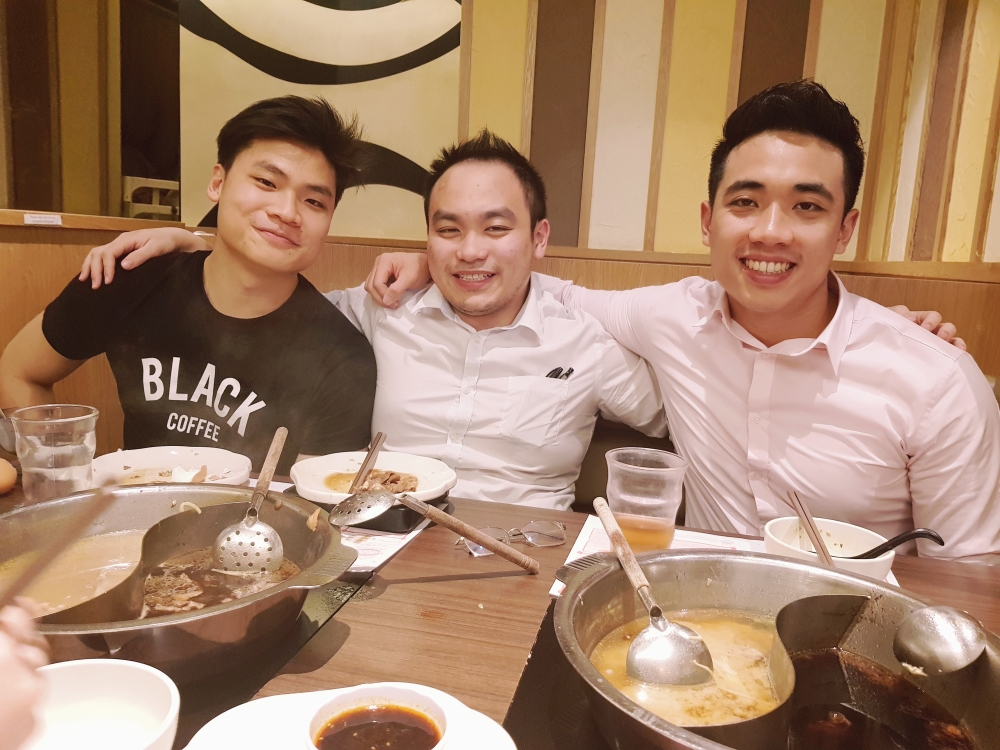
Yeoh Kai Shin
To my surprise, I actually thoroughly enjoyed DB. It was one of those programmes in which you learn via trial and error. Overall it’s a very practical programme as you acquire advocacy skills and you get the opportunity to get a feel for criminal cases. It’s not bad. 10/10 would recommend. (Weera had to convinced the shit out of Kai Shin hahahaha and Kai Shin accidentally got placed in Dock Brief. Things then took its own course).
The one thing I enjoyed the most about DB is the feeling you get after you successfully mitigated on behalf of the OKTs. It’s an indescribable feeling. It made me realise that no matter how little and insignificant we think of our services, but for this OKTs – it means everything to them. But sadly due to our PDK status, there’s only so much we could do. What I dislike the most about the DB programme is that helplessness you feel when you know you are not in the position to assist the OKTs any further.
Definitely pupils who love advocacy, or perhaps those who are practicing only civil and commercial litigation but wants a feel of criminal practice. Fun fact: I for one do not fall into any of the above-mentioned categories. But hey, I enjoyed it thoroughly. It’s a heck of an experience for sure.
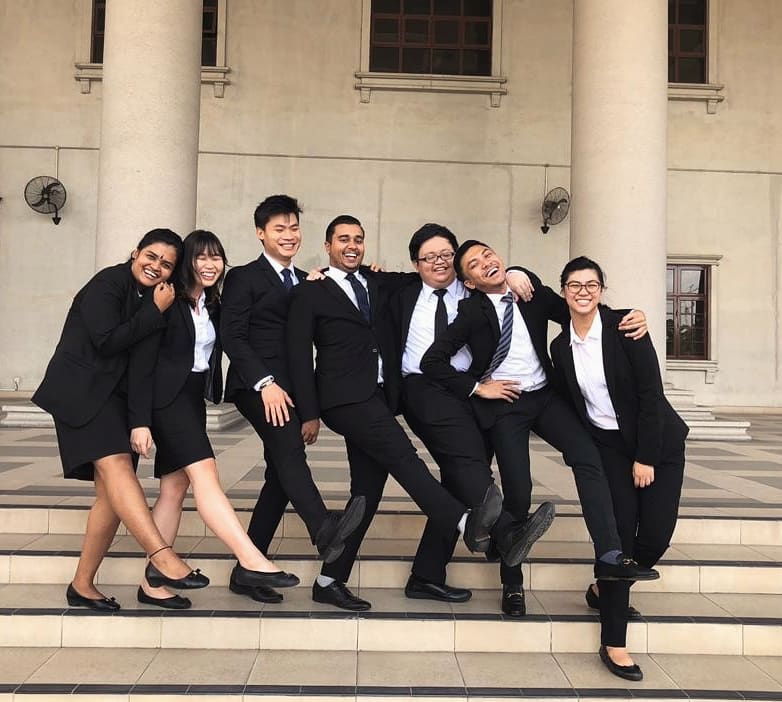
I don’t think you actually require any skillsets to do the DB programme properly. But I think you’d need to keep an open mind, be creative and remember that even through you’re just a PDK, you are in the position to change someone’s life. That’s something I take quite seriously.
This one time I remembered I was representing a young Vietnamese lad (21 years old), he was arrested for 12(3) DDA – couldn’t speak a single word of English or Malay. He came into Malaysia to look for his sister who was married to a local. The DPP in charge was very unforgiving, he wanted to request for a further date to appoint an interpreter for the OKT (which means he would have to remain in lockup for another few weeks). I decided that I wasn’t going to let that slide because he was already locked up for 1 month. So guess what I did next, I used Google translate. Luckily I was successful in my attempt and I manage to get him a reduction of his sentence, and he only has to serve one more month before he gets to go home.
Ivan
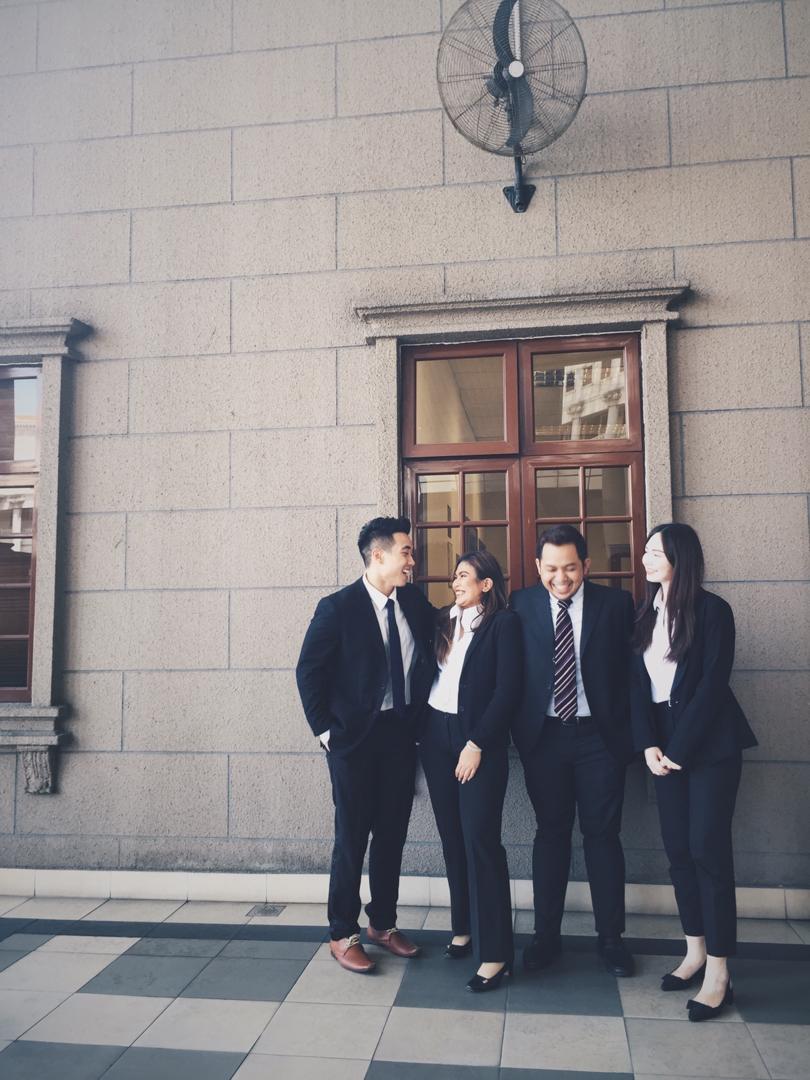
I just finished my 14 weeks of legal aid (I chose Dock Brief programme) and I am writing my views based on a crucial experience which is still fresh in my mind. Legal Aid is code for “Someone who really desperately needs help with something important, but can’t possibly get it with their resources”. Ok, before I start, let me get this out of the way, if you think that dock brief is your shining moment to parachute into the court like a white night with shining armor to “fight for justice”, please stop.
Your client may be from the streets, they might even dislike you, repeated offenders, but Dock Brief is essential for us to truly uphold the pillar “Rule of Law”. We are given the opportunity, which I myself truly appreciate, to be able to give the less fortunate the same level of access to our courts as a person of means. Remember what Attorney-General Abdul Gani Patail had reminded us that lawyers should serve the public including people who may not be able to afford legal fees. We are helping to close the justice gap between those who need legal services and those who can afford them.
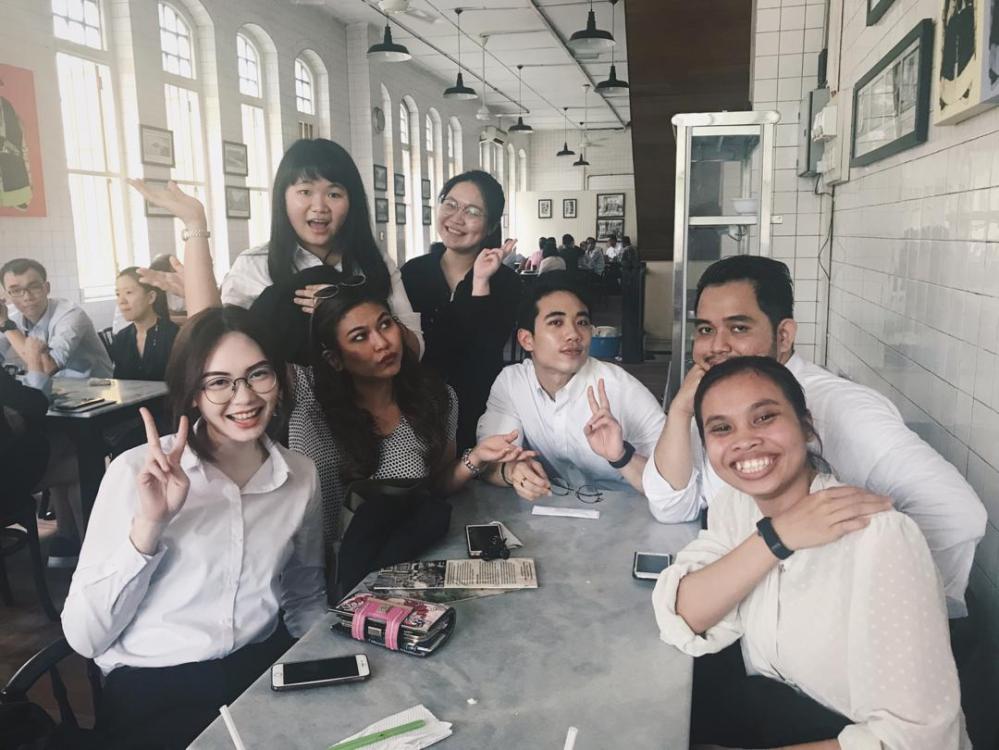
The Doc Brief programme allows us to put our advocacy skills into practice, to be able learn how to interview your clients, take down important details and deliver mitigation for the OKT (Orang Kena Tuduh).
However, I believe a more structured system should be implemented. The Chambering Students should be guided and receive proper training on the process starting from the interview stage all the way to mitigation. The programme should also permit Chambering students who are in their final 3 months of chambering to conduct a magistrate’s court hearing. Chambering students are capable of much, much, much, much more but our capabilities need to be dealt with the right approach.
2) What did you enjoy/dislike about the programme?
I really look forward to Wednesdays (my Dock Brief day), reason being with the powerful tool of Dock Brief, it is not just a nice change from the daily slog as a pupil, but additionally I can literally change (if not, try) the lives of others. I enjoy being able to represent domestic violence victims, children, immigrants, and a full spectrum of people to whom they look to you like you are their last resort.
Before stepping into the particular court that I am assigned to (Court 1 and 7 FTW!), I always remind myself, that it’s us who give voice to the voiceless, hope to the hopeless, and create second chances to those who deserve a chance. And to paraphrase Uncle Ben, “with great power, comes with greater responsibility”.
Throughout these 14 weeks, I have made friends who are like-minded individuals that have now became close friends. We share our court experiences; cover those who were swamped with many cases, and even talk during lunch breaks about lives as pupils.
Here comes the part that I dislike about. When we take part in legal aid, we are indirectly suggesting that the access to legal system shouldn’t be based on money and dollars. However, I’ve faced countless times where potential cases that could have been done at a better and free service were given to those who have made certain kind of alleged arrangements with the officers. That results in cases being given to lawyers before the list is even made available to us. Some days, all the cases have been taken up by other lawyers, and I ended up going on a “mitigating hunt” in other courts, or even end up having no cases for that particular day. This is a known fact and I believe that the Bar Council is looking into this issue.
All I am asking for is to fair play the game, a win is a win, and if we can mitigate and save a few hundred of Ringgit for the poor, let us leverage our skills to tangibly impact those in the community. I understand that this is a dog eat dog world but I can bet that our community needs our skills more than we need their money.
3) Your views on what type of Pupils will enjoy your particular programme
Pupils should first look at your own level and fit, take on the particular legal aid programme that is suitable to your skills, abilities and ambitions. Speaking for Dock Brief, it requires committed pupils who aim at doing advocacy in practice. If you do not enjoy advocacy consider contributing in another programme. But if you do, insist on doing Dock Brief (I selected Dock Brief as my Option 1 and 2 with zero regrets).
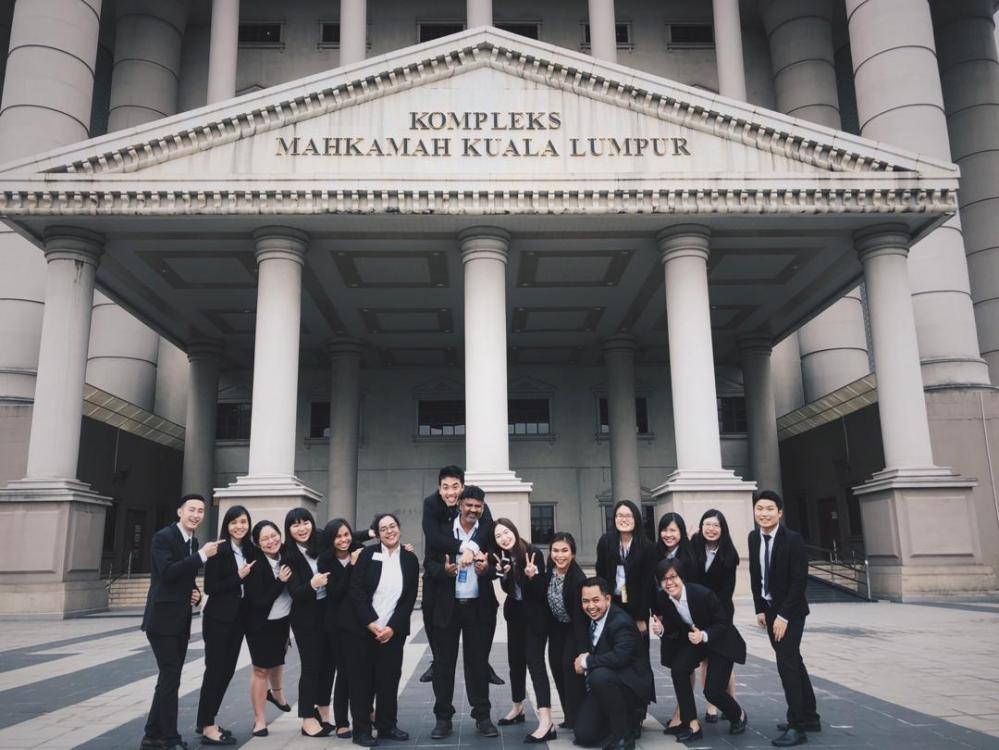
4) What are skillsets needed to thrive in the legal aid programme?
Just play your part, go out there and give it a shot! The bottom line: If you don’t help, who will?
Weera

To save time and space, I’ll just make reference to the comprehensive guide and stories on Dock Brief at BrainyLaw as seen above, which can be found here.
In short: being involved in Dock Brief would mean you are expected to:
a) Conduct Mitigation;
b) Getting and arguing for bail with a reasonable sum;
c) Attend to the accused’s problem and needs;
d) Assisting and explaining the Criminal Procedures to the family members;
e) Be a support staff at the Dock Brief Room;
f) Attend to civil and criminal questions from Walk-In clients at the Dock Brief Room; and
g) many many more unexpected hurdles!
Needless to say, to do all the above requires skills and knowledge. You know where to get them from! (Tips: Click the link above and/or google “Dock Brief Malaysia” and see what comes out on top!).


Yayasan Bantuan Guaman Kebangsaan (YBGK) by Jean Siow
YBGK is a body funded by the Bar Council to help people who can’t afford legal representation. The main repertoire of YBGK involves dealing with Criminal Matters, and sometimes also to matters involving divorce. YBGK does not only provide representation in court but also walk in advice.
1) Your general comment and views on your program
Useful and recommended especially for pupils in firm who don’t do criminal at all, due to the exposure involved in the programme.
2) What did you enjoy/dislike about the programme?
Enjoyed the court appearance. Disliked the limited scope though.
3) Your views on what type of Pupils will enjoy your particular programme
People who like to see different layers of society, and have a glimpse of how the “underworld” is like. Typical job scope would be to advise the arrested persons and liaison works.
4) What are skillsets needed to thrive in the legal aid programme?
Passion in the practice area. Never be tempted take up a programme that you have no interest in.

And that’s it guys! If you really want to know more and ask any questions to the writers about the programmes, feel free to join the Telegram Group at the link down below to ask your questions!
Telegram Lawyers & Pupils Support Group (Unlimited Members – 3,228 members as of 03.06.2021):
Update 03.06.2021 – NOTE: Due to massive and overwhelming demands (& to prevent wrong people wrong joining the group), I had changed the link to join the Telegram Lawyers and Pupils’ Support Group, and it is now only available on demand.
To join – Kindly contact Weera to get the latest link.

Special thanks to our Guest Writers!

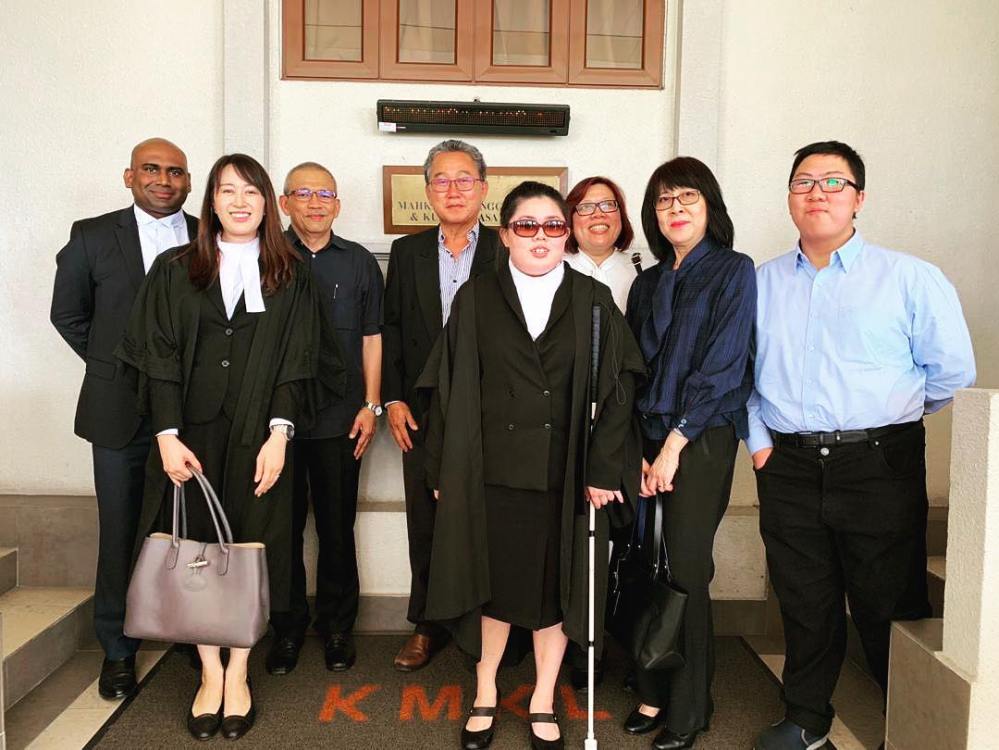

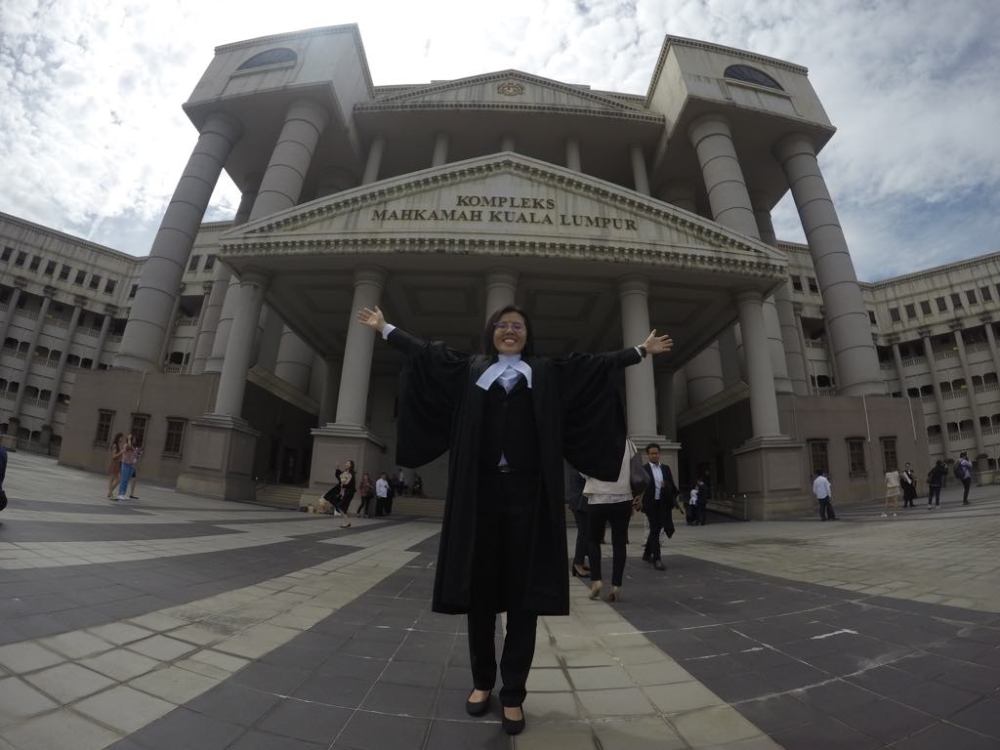
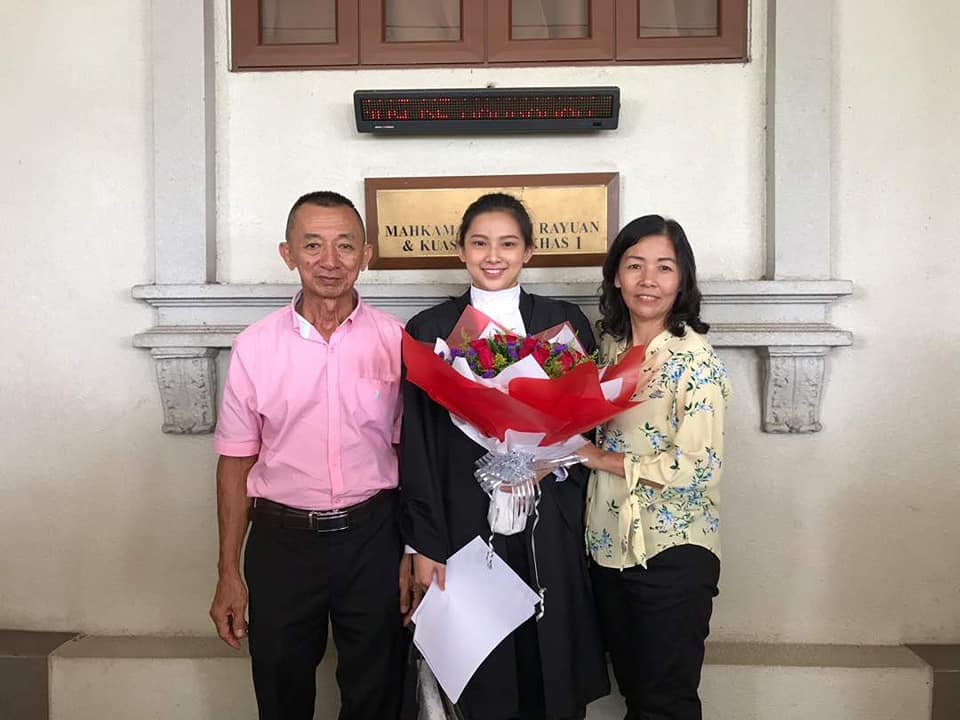
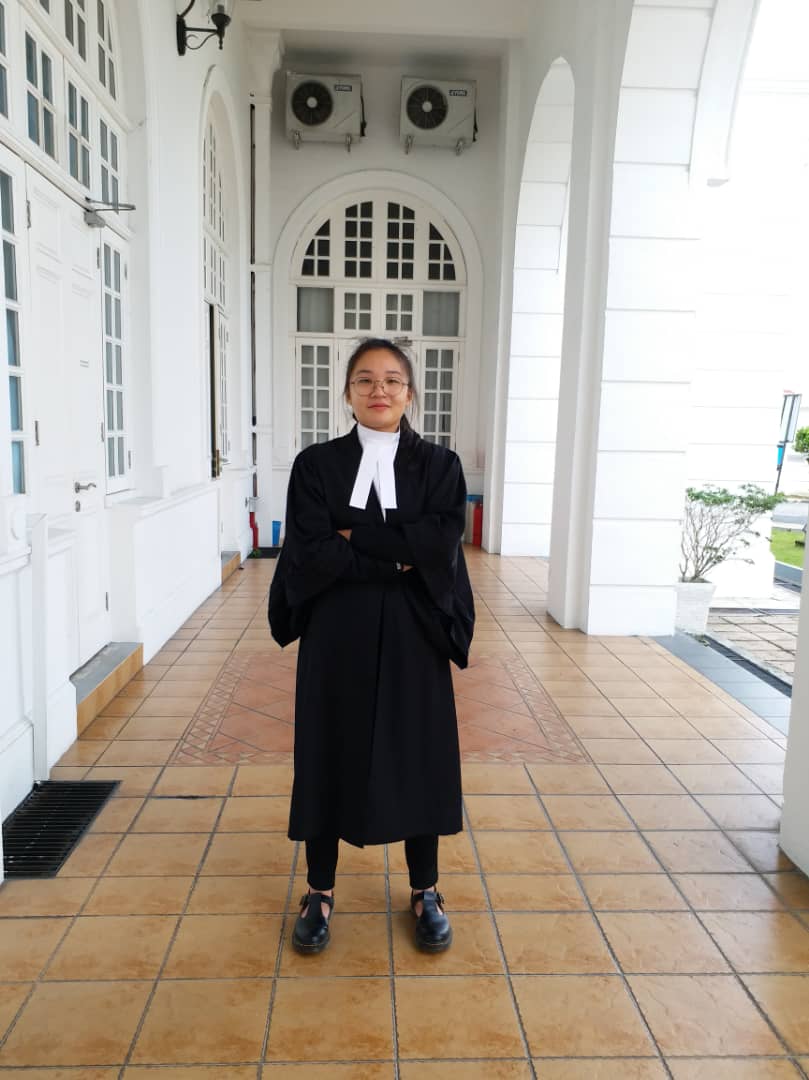

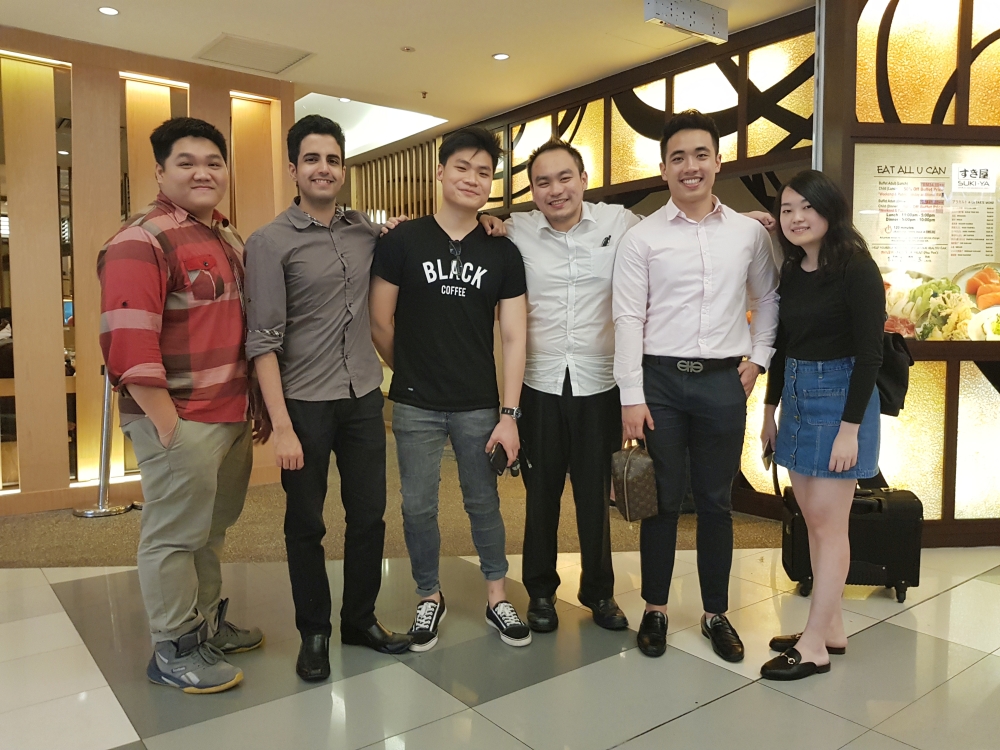
Fin.
Till we meet again.
